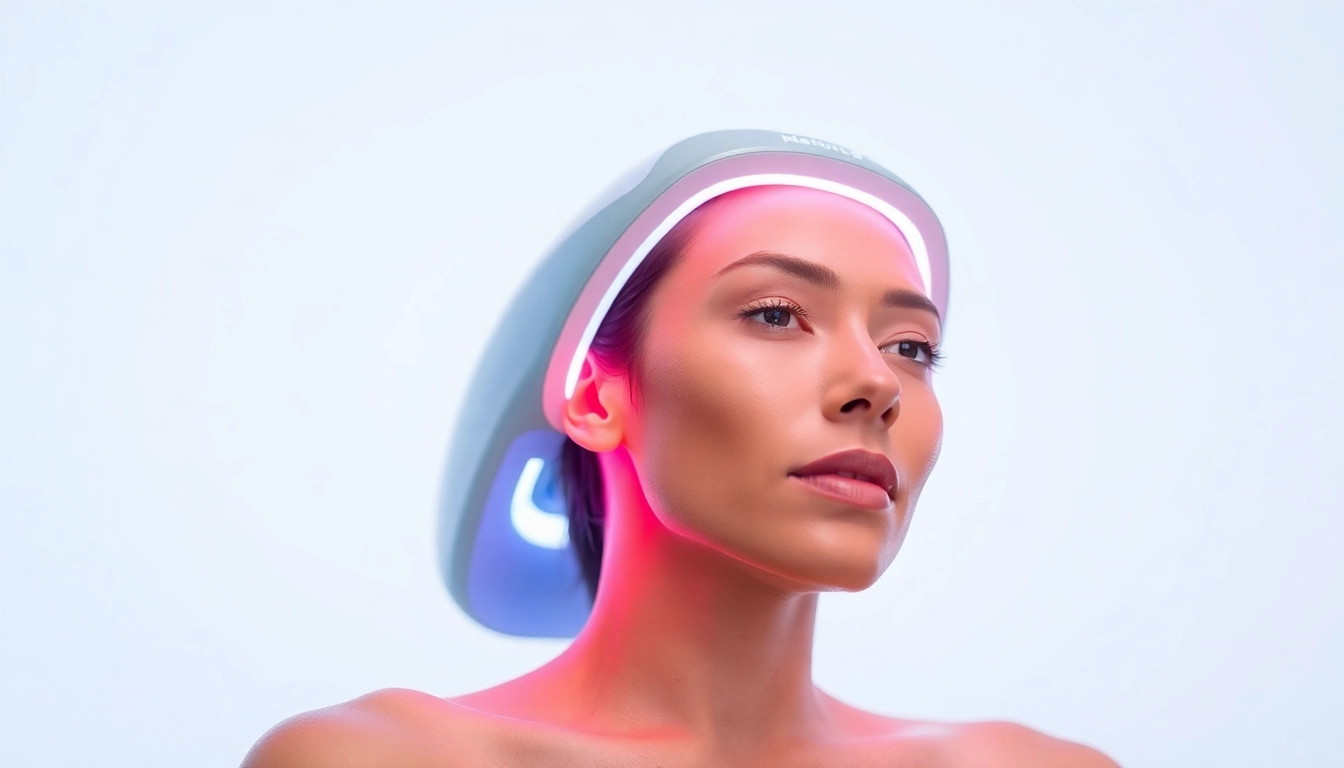Understanding quasar lighttherapy
In recent years, a growing body of research and anecdotal evidence has brought attention to the benefits of quasar lighttherapy. This innovative form of treatment harnesses the power of specific wavelengths of light to target various skin conditions and enhance overall wellness. In this article, we will delve into the science behind light therapy, how it works, and its myriad applications and benefits.
What is light therapy?
Light therapy, often referred to as phototherapy, employs specific light wavelengths to treat an array of health and skin issues. The most common forms include ultraviolet (UV) light for skin conditions, blue light for acne treatment, and red light for anti-aging and inflammation reduction. These treatments are non-invasive, making them attractive options for those looking for alternatives to more aggressive medical interventions.
How quasar lighttherapy works
quasar lighttherapy utilizes low-level laser therapy (LLLT) or light-emitting diodes (LEDs) to deliver targeted wavelengths that penetrate the skin. Depending on the wavelength used, it can stimulate cellular processes, enhance circulation, and promote collagen production. The mechanism is rooted in the principle of photobiomodulation, where light absorption by skin cells leads to increased ATP (adenosine triphosphate) production, thus energizing cells and spurring healing processes.
Benefits of using quasar lighttherapy
quasar lighttherapy presents numerous advantages for both skin health and general well-being:
- Non-invasive nature: Light therapy can achieve significant improvements without the need for surgical procedures.
- Minimal side effects: Most users experience few to no side effects, making it a safe option for a wide audience.
- Versatile applications: It can be applied across various skin types and conditions, from acne to signs of aging.
- Convenience: Many devices are suitable for at-home use, making treatment easily accessible.
Applications of quasar lighttherapy
Skincare and anti-aging benefits
One of the primary applications of quasar lighttherapy is in skincare, particularly for anti-aging. Research has shown that red and near-infrared wavelengths can enhance collagen synthesis, which diminishes over time as we age. By stimulating fibroblasts—the cells responsible for collagen production—patients can see a reduction in fine lines and wrinkles, improved skin texture, and enhanced elasticity.
Treatment for acne and skin conditions
Blue light therapy is especially effective in treating acne through its antibacterial properties. It targets the bacteria responsible for acne lesions, leading to a reduction in breakouts. Additionally, quasar lighttherapy can help in managing conditions such as rosacea and psoriasis, offering relief from inflammation and redness.
Enhancing overall wellness
Beyond skincare, quasar lighttherapy has applications in overall wellness. Studies suggest that light therapy can help with mood disorders such as seasonal affective disorder (SAD) by influencing serotonin levels through the eyes. Furthermore, it has potential in pain management, aiding recovery in sports injuries and reducing post-operative pain through enhanced circulation and cell regeneration.
Choosing the Right quasar lighttherapy Device
Features to look for in light therapy devices
When selecting a quasar lighttherapy device, several key features should influence your decision:
- Wavelength specifications: Different wavelengths target different skin issues, so understanding your needs is crucial.
- Device type: Options range from handheld models to larger panel systems depending on the targeted area and treatment complexity.
- Power output: The intensity emitted can affect treatment time and effectiveness, so seek devices with sufficient power.
- Portability: If planning to use at home or while traveling, lighter, portable devices may be advantageous.
Comparing device specifications and functionalities
It is essential to compare device specifications to ensure you find the right fit for your skincare needs. Some devices may combine multiple light wavelengths, while others may focus on a single spectrum. Assess user reviews and clinical studies that validate the efficacy of the device in question to make an informed choice.
Cost considerations and value
Cost can vary widely among quasar lighttherapy devices. While higher-end models may offer more features and better performance, budget options can still provide effective treatment. Evaluating long-term use and outcomes can help justify the investment, as many find they require fewer follow-up treatments compared to traditional methods.
Using quasar lighttherapy Effectively
Best practices for treatment sessions
To maximize the benefits of quasar lighttherapy, following best practices during treatment sessions is crucial:
- Clean skin: Always ensure the skin is free from makeup and products before applying light therapy.
- Consistent sessions: Maintaining a regular schedule enhances outcomes, adherence to recommended frequencies will yield better results.
- Follow manufacturer instructions: Adhering to the manufacturer’s recommendations regarding distance and duration can optimize efficacy.
Frequency and duration of use
Generally, results begin to surface after several sessions, with many providers recommending two to three sessions per week for optimal results. Depending on the specific device and condition, each session can last between 10 to 30 minutes. Customizing the plan according to individual responses and needs is vital for maximizing benefits.
Integrating with skincare routines
For the best outcomes, integrating quasar lighttherapy into existing skincare routines can be highly beneficial. For example, daily cleansing followed by light therapy and then applying serums or moisturizers can enhance product absorption and effectiveness. Consulting with a dermatologist or skincare professional can provide tailored integration techniques.
Evaluating Results from quasar lighttherapy
What to expect from treatments
Results can vary based on individual skin types and conditions but are generally noticeable within the first few weeks of consistent treatment. Users may expect improvements in skin texture, clarity, reduced inflammation, and fewer breakouts.
Tracking progress and results
Keeping a journal or photographic log can help track improvements over time. Marking the dates of treatments, any changes in skin condition, and overall wellness can provide insight into the effectiveness of treatments and allow for adjustments as necessary.
Tips for maintaining results
To maintain results from quasar lighttherapy, consider continuing a regimen that incorporates regular treatments with proper skincare practices, including daily cleansing, hydration, and sun protection. Periodic follow-up sessions can also aid in sustaining benefits long-term.



